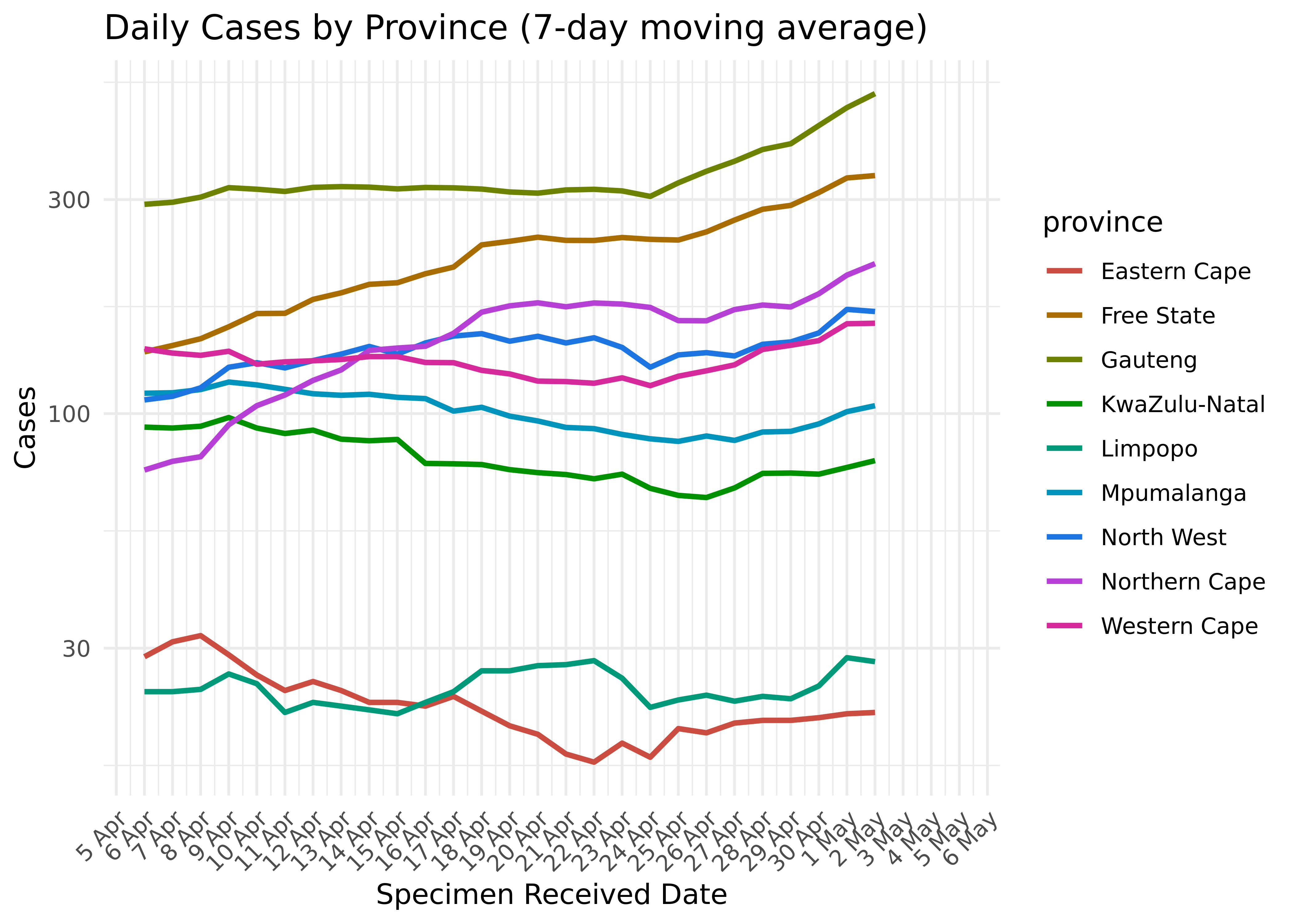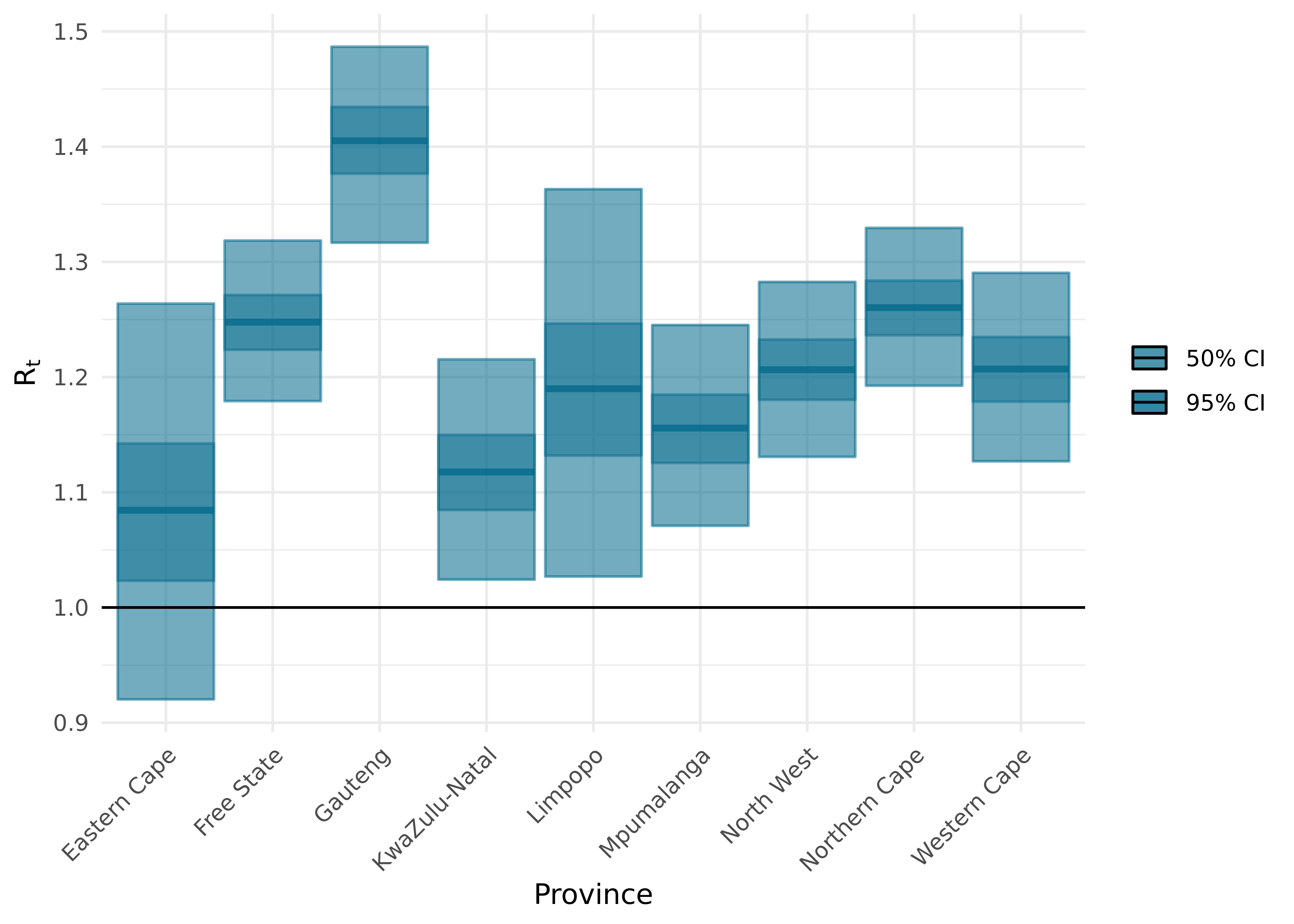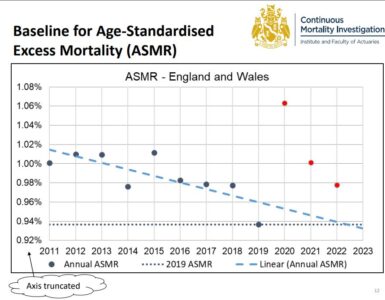COVID-19 cases in South Africa have been rising for the last month or so. The effective reproduction number (R) is high, indicating a growing epidemic. This may be indicative of the start of a third wave.
This blog provides a summary of a report we produce every evening that is available here.
The 7-day moving average of daily cases increased from about 1,000 per day 30 days ago to over 1,600 per day this week as shown below. This represents a 60% increase. Case numbers are recorded by specimen received date. Case counts for the last couple of days have been adjusted for estimated reporting delays, with adjustments made to remove the effect of public holidays. A clear upward trend is observable. Relative to increases seen in earlier waves, this is still a small increase but is nevertheless problematic.

Cases were rising in Northern Cape and Free State consistently over the 30 days. In the last week or so they have also started to increase in other provinces including Gauteng, the province with the highest population. Eastern Cape, which had very severe epidemic in the previous waves, is still reporting low case numbers.

The proportion of COVID-19 tests that are positive has started to increase, from a low of approximately 4% to touching 6%.
Case count data has been used to estimate the effective reproduction number (R). The blue shaded areas in the following charts represent 50% and 95% confidence intervals.

R across South Africa was below 1.0 in mid-to-late January as the second wave subsided. R began rising again at the start of February and has been volatile around a value of 1.0 during March and April, coinciding with Easter and the school holiday period.
In the last couple of weeks, R appears to have increased rapidly and the latest estimate is between 1.2 and 1.3. It is possible that the recent holiday periods have resulted in accelerated spread of the virus. It remains to be seen whether the trend will continue.
All provinces have values above 1.0, although data for some provinces is subject to wide confidence intervals. Gauteng currently has the highest R estimate with a value in the range of 1.3 to 1.5.

The Medical Research Council of South Africa produces estimates of excess natural deaths on a weekly basis. Nationally these figures have also increased by over 50%, with 1,789 in week-ending 1 May, from 1,170 the prior week.
The rise in cases, the proportion of positive tests and excess deaths is concerning against a backdrop of new variants, slow vaccine roll-out and relaxation in behaviour. These warning signs are a leading indicator, so it may take some time for this impact to be seen in hospitals. The hope is that with early warning this can be avoided, ideally through behaviour adaptations but if necessary via stricter formal measures.
A possible mitigating factor is that immunity acquired through previous severe infection waves may slow down or reduce the severity of this potential wave. Additionally South Africa has now procured significant numbers of vaccines that are starting to be administered.
We will be paying especially close attention in the weeks ahead in the hope that a third wave can be avoided. Daily updates are available here.














